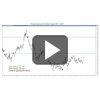Latest Trader Channel Posts
Traders & Investors Club Meeting - 17th July 2012
As Market Roundup fans will know, we have repeatedly referred to bond yields to illustrate that the scare-mongering around impending hyper-inflation was always something of a crock. 
The fact is that deleveraging continues apace and deflation is the beast in the cellar of which we all should be afraid.
This week, our hapless regulators have cranked up the printing presses yet again. Surely, that should have given stocks and commodities a welcome boost? Alas, it was not to be. Both asset classes actually fell into the week's close.
WIth the BofE base rate at its lowest for 300 years and the printing presses already having created the equivalent of £12,000 in new money for every UK household, it is clear that we are still mired in a Keynesian liquidity trap.
As traders, can we still make money in these economic conditions?
To quote our old friend, Barak Obama, "Yes, we can".
Kevin Barry of the Traders & Investors Club will be explaining why he is becoming ever more heavily invested in bonds...............on the short side.
Whoaa.......so he thinks that inflation is heading our way after all?
Au contraire. With every Tom, Dick and Harry being long bonds, he believes that we are ripe for a substantial reversal.
Why?
Increasing fears of default, which is going to push up yields on junk, municipal, corporate and even Government debt. That's why.
To see why this is the most likely scenario, we simply need to look back to the early 1930s when we last faced a catastrophic financial crisis of similar proportions. WIth shrinking liquidity, where will the money to repay the outstanding capital and interest payments come from?
Well, for a start, it will be necessary to start selling quality assets such as...........gold.
Which brings us neatly on to another one of Kevin's favourite hobby horses.
But that's another story.
Trading On Strength: So und FX
und FX
This evening, we will have the pleasure of Martin Hatt of the Traders & Investors Club describing how he trades the six major currencies on daily and weekly charts.
Martin has more than twenty years of management and banking experience at a senior level in Emerging Markets as well as a track record in syndicated loans, secondary loan trading, debt restructuring, structured finance, new issues and bond syndicate, funds management and private equity.
He has been trading his own account on a full-time basis for the last five years during which time he has been an active member of the Traders & Investors Club.
Martin will be explaining how he assesses the strength of each currency on a daily and weekly basis and ranks them from strongest to weakest. From this analysis, he decides upon the trades that he will place at the Monday open.
Martin's target is 60% winning trades. He will discuss the trades that he has placed over each of the past six weeks, including the entry technique, stop loss rules and trade management to show how his results were achieved. He will also examine four currency pairs on a daily chart to see how successful this strategy would have been over a longer period.
Martin is a great example of how a trader can evolve from novice to maturity through self-education, focus and putting in the time and effort to develop a strategy that works for him.
If you want to find out how it's done from somebody who has done it, this presentation will be a great place to start.
Trading The Fundamentals: No Indicators Required
 Instructus Trading was founded by four City of London trading professionals with sixty-five years of collective experience working for some of the world's leading banks.
Instructus Trading was founded by four City of London trading professionals with sixty-five years of collective experience working for some of the world's leading banks.
This evening, we are very pleased to welcome two members of the Instructus team who will be introducing us to their refreshingly different approach to trading the stock market.
Giles Johnston began his career on the floor of the Stock Exchange, during the Big Bang in 1986, trading for Nat-West markets. Subsequently, he joined Deutsche Bank and then Citigroup where he was Managing Director responsible for Energy trading.
Mat Belton started trading with Nat-West markets in 1985 before joining Bank of America and subsequently Citigroup as a specialist financials trader, where he managed substantial proprietary trading portfolios.
As well as trading their own accounts, the Investus team is on a mission to bring professional-standard financial education to both new and experienced investors.
The first thing that you will notice is that there is hardly a technical indicator in sight. Instead, trading decisions are based upon research and a thorough understanding of the financial instrument under consideration before a position is taken.
Giles and Mat believe that strong companies are strong for a reason and they will not take a contrarian position without having a very good reason for doing so. Furthermore, they are not proponents of the stop loss. Instead, they hedge their positions by taking advantage of the correlations between stocks, market sectors and other asset classes.
This evening, they will be introducing us to their trading philosophy that will encompass:
Trade Idea Formulation And Execution
How To Manage Risk
Portfolio Trading
Beta Hedging vs Stop Loss Techniques
This is your opportunity to experience at first hand how professional traders concentrate on managing risk in order to generate consistent returns.
Today's Economic Crisis - An Emerging Markets Perspective
Martin has more than twenty years of management and banking experience at a senior level in Emerging Markets as well as a track record in syndicated loans, secondary loan trading, debt restructuring, structured finance, new issues and bond syndicate, funds management and private equity.
In this presentation, Martin explains why he believes that today's crisis is far more serious a











